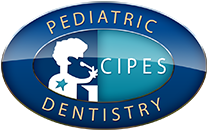Infant feeding and its Impact on Oral Health

Developing good dietary habits at an early age can help prevent dental caries. This is our perspective on how infant feeding practices can impact oral health.
Breast-feeding
We wholeheartedly support American Academy of Pediatrics’ recommendation for continued breastfeeding as long as mutually desired by mother and child for 2 years. Breast milk alone, when there are no other foods in the diet, is not cariogenic. However, once other foods and beverages are introduced the risk for developing caries increases. Unfortunately, we still see breast-fed children who develop early childhood caries. This correlates with frequent breastfeeding once the baby has teeth. For this reason, we caution parents about ad lib breastfeeding, especially during the night and discourage the sharing of a “family bed”.
Bottle-feeding
Prolonged dinking from a bottle can result in early childhood caries. This is especially true if the child goes to bed with a bottle or has access to the bottle or sippy cup throughout the day.
Transitioning to a cup
Parents may choose to wean their child to either an uncovered cup or a covered (‘sippy’) cup with expressed breast milk, milk or a milk substitute. Cups with a flexible straw help with oral motor development and several come with a leak proof cover that is convenient for parents.
Water with fluoride will protect the developing dentition
Once a baby is at least six months old, parents can offer small amounts of water but water should not replace breastmilk or formula feeds. Breastmilk or formula should still be the baby’s main beverage up to 12 months of age. After 12 months, a child’s main drink should be water and milk or breastmilk.
Sweetened beverages cause cavities!
Not only are sweetened beverages cariogenic they are often associated with childhood obesity. We recommend children drink them only on occasion. We recommend against drinking sweetened beverages from a sippy cup.

